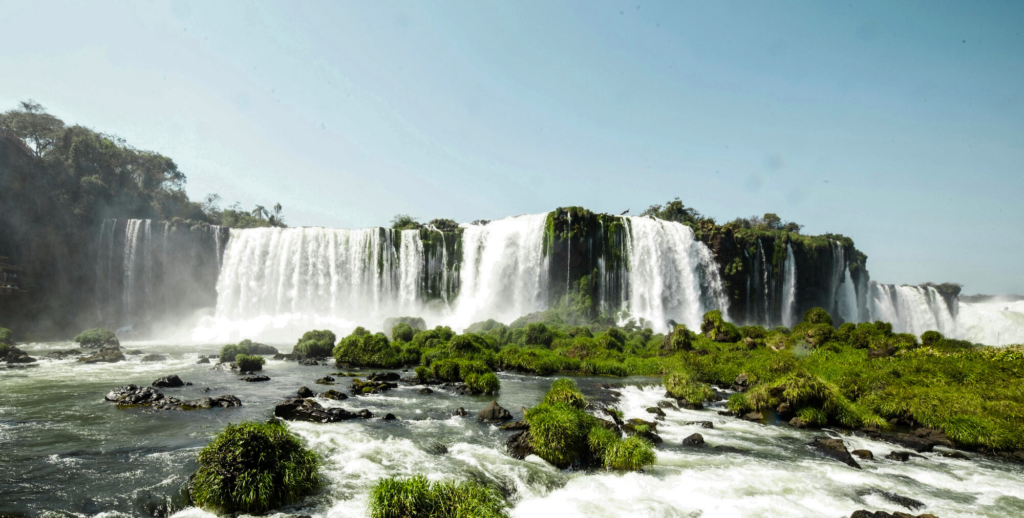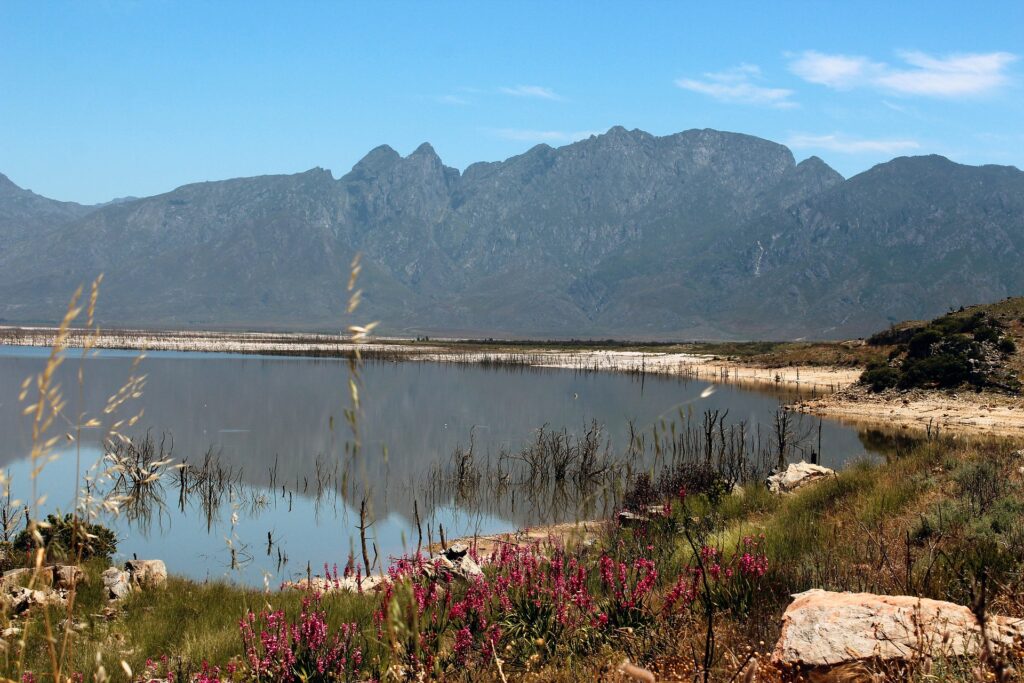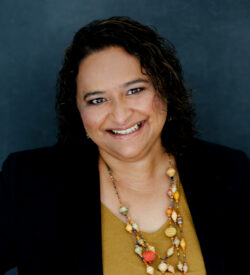“This is a community. It’s a growing community. It has momentum. And it has trust. And it has weight… Water stewardship is becoming an unstoppable force.”
Scott McCready, Chief Strategy Officer, Alliance for Water Stewardship (AWS)

AWS is busy preparing for our 2024 Global Water Stewardship Forum, which will be held on 05 & 06 June at the Assembly Rooms in Edinburgh. We caught up with Chief Strategy Officer, Scott McCready to hear how the water stewardship community continues to build momentum and what participants can look forward to this year.
Convergence was a major topic of discussion at the 2023 Forum. How has the water stewardship community made progress toward convergence in the past year? What work still needs to be done?
Honestly, I think we’ve only just begun the conversation on convergence. Collectively, most of us in the community recognise it as something that would be good to have, but arguably we don’t yet know what it means and what it involves. It’s a word, a feeling, an ambition – more than an actual thing. So while that’s good, it’s currently a bit thin – how we make it an actual thing is what’s next.
Personally, I see this as being a long-term process of four eras. Last year, and the preparatory work for UN Water, was the first phase, asking: Do we think the convergence of our respective products, initiatives, strengths would be a good thing? The consensus seems to be ‘yes’. The phase we’re in now is really about scoping: What are the things that need to work together better, and what is the current state of nature?
The next phase is about identifying the intermediate quick wins that build out from that scoping: What can we change about our respective operating models/systems/processes that bring about quick wins. Little building blocks, starting with the achievable stuff.
The bigger, harder, and more complex stuff is the following phase: what would genuine convergence of multiple different organisations, who share an aim but have different strategies, financial imperatives, people, and programmes look like? Is it even possible or warranted? From a water security perspective, and a scaling water stewardship perspective I’d say there is a need. It’s the how that’s the difficult part.
Can you give us an overview of what can attendees expect to learn and see at this year’s Forum?
One of the things I like about the Forum is it’s one of the few places where the sole topic of discussion is water stewardship. The AWS Forum and the Mandate’s endorser meetings – arguably these are the only two spaces where everyone in the room works on the same and, let’s be frank, really quite niche subject.
That brings with it some positives and negatives. We all know that the negatives are we need to break out of our silo, etc etc. I get all that. But that silo mantra also sometimes underplays the strengths of what we have? This is a community. It’s a growing community. It has momentum. And it has trust. And it has weight. Look at the weight of the organisations that are pushing this stuff. It’s that weight that will break the silos more than anything. Water stewardship is becoming an unstoppable force. So, I’m generally quite relaxed about having a niche conversation with water stewardship-heads. Because what we are actually doing every year is growing the size and weight of our arguments and leverage.
The Forum kind of picks up on that and uses it. Since its formation, we’ve aimed to keep it as a giant workshop amongst people who know each other, know the topic from different perspectives, who rarely have the time to be in a room all at once. And we work our way through all the most pressing stuff and, with that, we jointly progress.
I realise that didn’t answer your question – sorry, haha.
Not quite. Let’s put it another way: what are some of the highlights from this year’s programme? Are there any sessions that you are particularly looking forward to?
I sort of visualise the programme as being in different parts. The two days are bookended by some big picture thinking of where we go next. Discussions with stakeholders both outside our core world and inside also.
Then, there are a few interconnected, community-wide discussions on convergence. It appears to me that there are three topics we need to converge on: what we do in places (i.e. collective action); how the things we ask companies to do relate to each other (i.e. solutions, systems, reporting mechanics); what information do we all generate, seek and need to mutually progress (i.e. data).
Then there are some AWS-specific sessions. How has our standard been used by companies? What have they learned that’s worth sharing and knowing? And how do we improve our system to make a next-stage version of the AWS Standard that is adopted at scale? The revision to V3.0 that is underway.
Finally, there are the opportunities that we see as emerging. What are the things coming up that can grow the weight, the influence and the impact of our world? At one end of the spectrum, that’s how we respond to WASH, to policy and to climate – and at the other, it’s what are the new initiatives, markets or topics that can grow this thing?
I’m basically trying to avoid saying “all of them, they are all a highlight”. But that’s what it is.
Okay, if there is one new topic what is it?
CSRD is the obvious one. I think it will be the underlying thread across a number of discussions.
On the very basic level there is – ‘what does CSRD mean for me?’. I commissioned some work with South Pole that will be presented in one of the sessions. It’s a mapping of where AWS aligns to CSRD and CDP and TNFD. It’s interesting and very positive, but it’s only really a start. What’s more interesting is what happens with that next. Our new Head of Policy, Faith Lawrence, will be taking that work forward with members on CSRD. What can we do with our members and with our peers to make the European legislation (and whatever comes in the US) a useful vehicle for credible action? How do we leverage that with what we already have?
Which in turn comes to the additional question: what does regulation mean for the wider stewardship community, and – that topic again – convergence? All of the systems, frameworks, disclosures and stuff we have collectively built, they are all voluntary. You can do them or not. However, regulatory trumps voluntary every day of the week. As Gregg Brill from the Mandate highlighted in a conversation had earlier this week, CSRD exists and to a large degree it hasn’t paid that much adherence to all of the things we have built. So how do we collectively pivot? How do we adapt the things we have built so that they are useful for the reporting companies cannot avoid, and help to position our ‘stuff’ as the best-in-class approaches to stewardship?
Conceptually that’s quite exciting. And on the ground, in the markets we target it’s a huge, huge, huge opportunity – because it’s the law. It’s everybody, not just our (albeit growing) gang of volunteers.




